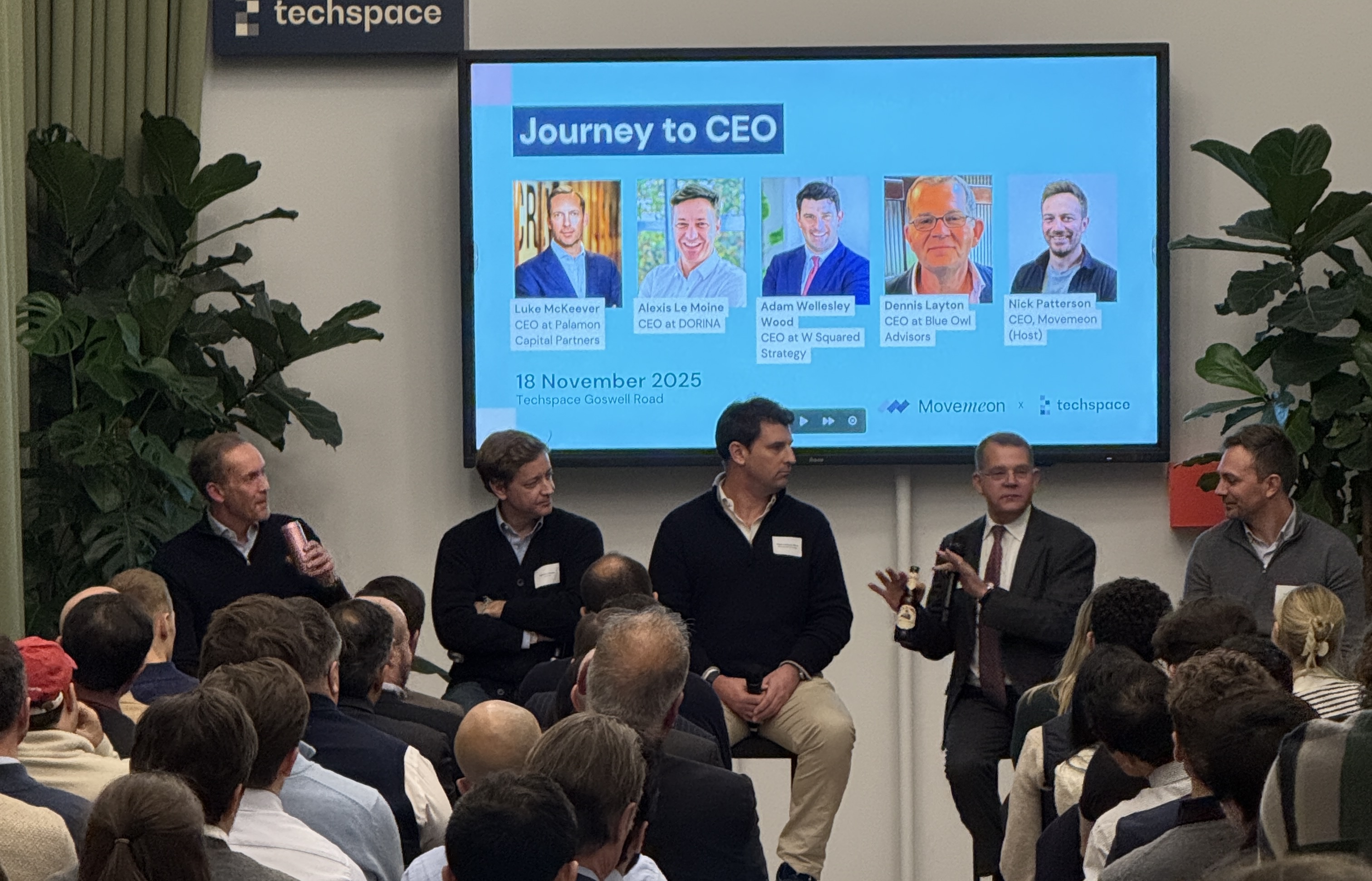We speak to Aude, ex-McKinsey co-founder of Innovafeed, on the challenges inherent in scaling and how a consulting skillset can help solve them
Interview with Aude, Co-Founder of InnovaFeed, a biotech company that produces a new source of protein from insect rearing.

Table of contents
Tags
Subscribe to our Newsletter
InnovaFeed is a biotech company that produces a new source of protein from insect rearing for animal feed and aquaculture in particular. The business is focused on a more sustainable future: using unique technological expertise to place the insect at the heart of our agri-food system and restore it to its natural place in our ecosystem - that of recycling nutrients to then feed fish, birds or small mammals. The business has raised EUR55m a. Here we talk to Aude Guo, ex-McKinsey, and one of the co-founders.
Innovafeed are currently hiring for Directeur de l’Excellence Opérationnelle through Movemeon.
What is the focus for Innovafeed over the next year?
Our main focus is to succeed in the “scale-up phase”. We are going to have the largest insect factory in the world launching this summer. This will help us to validate the model at an industrial scale.
In parallel, we also need to succeed in the scale-up of our organisation. The business has grown very fast in the past few months (we’ve tripled in size in 10-12 months), which is great but brings scaling challenges. We need to grow in size but to keep the agility and momentum to maintain the excellence in execution we are recognized for. We’ve found it’s been really important to have:
(1) More structure and processes;
(2) Build and consolidate the culture we’ve developed over the last 4 years.
A big change I’ve felt personally, is that I now don’t know everyone joining the business personally and with one office in Paris and two factories in the North of France, this will only become harder. Inherent in this is the challenge to ensure the values and culture remain the same - it becomes a question of how do you foster the same culture across teams of people who may never meet and who work in very different environments.
And over the next 5 years?
In the longer-term, we believe we can have a huge impact on the environment and help the trend of people sourcing food more locally. Climate change is one way the earth is showing its not happy. There’s a huge protein issue to be solved (70% is currently imported). The team are energised by the meaning and sense of the project.
For the leadership team our 5-year targets are:
- Validate the model at industrial scale
- Replicate the model (scalable in Europe and US)
- Reach the capacity to have a real impact on the whole market. Adressable market for insect protein counts in tens of millions of tons, while production capacity today only in thousands of tons
We are in a rather unique position, where there is no question the market exists - it’s more a question of how do we get to capacity quickly. We need to build momentum, and to do this, speed and agility will be key.
You mention the importance of fostering a culture - how have you continued to do this with the changing working patterns in response to COVID-19?
It’s something that is really important to us, so we’ve invested a lot of energy in trying to solve this challenge. The main challenge we have had is figuring out how to maintain the sense of belonging and how to be together as a team while working remotely. Some strategies we gathered during the past months:
-> Remote often means more meetings, not fewer: investing more in personal touch-points was necessary to understand how everyone was doing and to keep everyone on board. Working remotely actually meant our manager spending more time with the team and an additional workload.
-> Meeting formats needed to be adapted to enable quality interactions: While video-conferencing tools were able to efficiently replace many physical interactions, some meetings involving larger teams were difficult to carry out remotely. For instance, we had to find a way to celebrate the company’s anniversary and video-conferencing just couldn’t convey the same energy. We came up with more personalized content sent out to every team member’s home combined with short talks and fun activities (including a virtual commented tour of our new factory as it was completed).
-> Importance of physical contact: As France opened up again, we took the decision to keep our offices open (especially for people who don’t have the right conditions to work) by establishing drastic hygiene norms, rearranging office layout and controlling the number of people present. , Physical contact is still so important. It often changes the nature of the meeting and is critical for the team to maintain the bond.
In the early days of Innovafeed, how did your consulting skillset help you?
My experience at McKinsey was hugely beneficial, and I called upon the consulting toolkit regularly. In particular:
- Problem solving: how do you do things efficiently? This is what you do all the time as an early founder. What is the most efficient, energising way to find solution to the problem?
- Ability to prioritise: hugely important. It’s mostly about what you don’t do, not what you do. You need clear criteria to make the decision (not only for yourself but also understandable and acceptable to others; and something that is engaging).
- The way you communicate. 80-90% of the time, being a founder is about aligning people and getting quickly to the point. Our business has people of very different professional backgrounds and needs; you need to understand and address what is important for each person quickly, in a way that is relevant for them to get them on board. It’s about not spending one hour on a topic if it can be covered in 3 minutes.
- Stakeholder management: We would not be able to achieve this alone, and as such stakeholder management is critical. We provide protein but need to understand not only our direct client’s needs but also every player of the value chain so as to work together as an industry and offer something completely coherent to the final consumer. This way we work with the feed formulator, but also fish farmers and retailers to bring high quality and sustainable insect-fed fish (and now poultry too!) to the consumer.
Did you know you wanted to be an entrepreneur when you were at McKinsey?
I hadn’t decided to do anything entrepreneurial when I was at McKinsey. Whilst my father had been an entrepreneur, I didn’t think it was the route I was going to take.
I actually found it really hard to leave McKinsey. I wouldn’t say I think of myself as an entrepreneurial type, instead I'm driven more by “how can I have the most impact?” I wanted to do something meaningful and push myself. The reasons I left McKinsey was the sense of the project and the team of people I had the opportunity to create the project with. I would say that the latter is even more important to me. I believe that if you are with the right people, you will make the right choices for your project and give it meaning. I was convinced to join by my associates.
This has continued - people join Innovafeed because of the meaning of what we want to achieve and because of the people who joined us. It’s been something quite powerful and we are really proud of this team . You can’t be energised by what you’re doing alone; it’s the people you work with. They give you energy, and you’re driven by not wanting to let them down.
What’s your day job like now, and does the McKinsey experience still help?
Yes - definitely. It’s more about the ability to build relationships quickly with different types of people. You get that from consulting. You are able to engage with your network quickly.
It also helps that some of our investors were former colleagues. They’ve been really supportive, and given some great advice.
The Alumni Network was very important to us, but we were also able to engage with a lot of people outside of that network, by using the consulting skillset around communication and building relationships.
Do you like to hire ex-consultants into your business?
Yes - we’ve hired a lot of ex-consultants, and have found them to be extremely effective. The main reasons being:
- They are great problem solvers: consultants have the structure to deconstruct a complicated issue into simpler ones. They can then prioritise a list of simpler questions, and answer one by one.
- Analytics: We really like people with an analytics background, as they are able to use clear criteria to support decisions. You also need to be prepared to make assumptions (something consultants are good at!) - try to get the best number, even if it’s often wrong.
- Ability to engage with very different people. If you want people to work together they need to be able to solve each others’ problems.
What would your advice be to a consultant founding a business?
Start finding the right people early. It’s so important to get the right people. You need to know what you want (i.e., vision), but the key thing is finding great people to achieve that vision.
If I were to start again, I’d recruit the organisation we have today faster. I was reluctant to hire overqualified people for fear of not having ambitious enough projects for them, but that actually never happens . The more ambitious and capable the people are, the more they will open up new horizons in your thinking.
No challenge is too small so don’t be afraid to get the best people.
Why do you think there are a lot of ex-consultant founders?
I imagine that thinking all day long about market trends and other people’s businesses gives you ideas about the kind of business you would want to create.
My personal motivations for starting a business were wanting to prove to myself that I could do the things I was advising others to do and do it with the people I really wanted to work with. I also wanted to be judged by what I create and do rather than by the fact that I was working for a well-known company.
At Movemeon, we connect (ex) consultants and freelancers with job opportunities, advice & events. Register now to view and apply to jobs, for insider advice & networking/industry events.
Where Talent Meets Opportunity
Our exclusive network use us to find job that fit their skills, and thousands of Employers trust us to hire exceptional talent. Choose the path that matches your goals - start exploring or start hiring.
Our latest articles
We regularly publish up-to-date articles to keep you up-to-date on the market and our work.
.png)
A record quarter for Private Equity deals sees a sharp hardening in the hiring market
Talent supply tightens as PE demand surges: Inside Q4’s hardest hiring market in two years, where Private Equity accelerates, scale-ups hold steady, and Large Enterprises struggle to attract strategy and transformation talent.

What we can all learn from Private Equity about talent - McKinsey, HBR and our analysis
Private Equity has become one of the most influential forces in business, outperforming public companies through disciplined value creation and exceptional talent strategy. This article explains how PE achieves its results and why demand for ex-consulting talent is rising across the industry.
Join our exclusive global community
Receive exclusive data & insights on pay, benchmarking, and industry interviews to build a career that’s right for you.
Create an account today and start searching roles in under five minutes.






